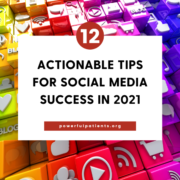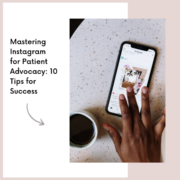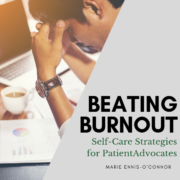How to Serve on a Scientific Review Panel as a Patient Advocate
This resource was originally published by Cancer Today Mag.com by Bob Riter, Monica Vakiner and Carole Baas, here.
by Bob Riter, Monica Vakiner and Carole Baas
Image by OnBlast / iStock / Getty Images Plus
WHILE IT’S MOST COMMON to hear about cancer patients getting involved in research by enrolling in clinical trials, patients and others affected by cancer can also help shape the direction of research by serving on scientific review panels.
These panels bring together experts to analyze research proposals to help determine which ideas will receive funding. Several organizations and government programs, including the Congressionally Directed Medical Research Programs, the Patient-Centered Outcomes Research Institute and Susan G. Komen, provide opportunities for grant review to patient advocates, including cancer survivors, patients and caregivers.
Opportunities to Apply Yourself
Advocates interested in becoming involved in a research review panel can explore options with government agencies and nonprofit organizations, including patient advocacy organizations that provide research funding for various projects.
- Funding organizations such as the Congressionally Directed Medical Research Programs and the Patient-Centered Outcomes Research Institute allow advocates to apply online to serve as reviewers.
- Intensive training programs such as the American Association for Cancer Research Scientist↔Survivor Program or the National Breast Cancer Coalition Project LEAD help advocates learn more about the science of cancer.
- The Cancer Information Support Network, Cochrane Training and Research Advocacy Network offer online learning opportunities for patient advocates who want to learn more about interpreting research.
While scientists and clinicians on panels analyze the science, patient advocates judge the merit of the study from a more personal vantage point, guided by a basic question: “Will the study make a difference in the lives of patients?” Everyone on the panel has an equal voice and vote to rank the research applications.
Initial Review
Advocates who are selected to be a part of a scientific review panel usually participate in an introductory phone call or webinar hosted by the panel organizers, who provide an overview of the process and answer any questions. Some review panels pair novice patient advocates with experienced advocate mentors. In these cases, novices can connect with and get feedback from their mentors.
Scientific review panels typically have a mix of approximately 20 scientists and two to four advocates. While each panel has its own process for review depending on the funding organization, panelists typically review approximately five to 10 research proposals, providing comments and scores. These research proposals generally include sections that describe the research plan, the researchers’ qualifications, a timeline, a budget and letters of support from the organizations where the researchers work.
Advocates are not expected to understand each scientific detail in these proposals. Rather, they focus on the potential impact of the research on the patient community. For example, advocates are well suited to offer feedback on the lay abstract, the one-page overview of the proposal written in nontechnical language. These abstracts provide a general idea of the research and demonstrate the researchers’ ability to communicate with a broader audience.
In addition, patient advocates can ask several important questions about the research: Does the grant application have a clear hypothesis? Does the researcher make a compelling case that the research is important? Do the researchers and institutions where they work have track records that demonstrate the research will be completed? Do the letters of support indicating institutional backing seem enthusiastic?
Optimize Your Time
Follow these practical tips to make an impact on scientific review panels.
Further CollaborationOnce the initial scoring is tabulated, panelists meet again—either virtually or in person. For example, the Congressionally Directed Medical Research Programs hold meetings for one to two days in the Washington, D.C., area. During the meeting, each panel reviews the top-scoring 20 to 30 applications in its assigned subject area.
The committee chair and a scientific review officer keep the panel focused and on schedule. The reviewers go over their rationales for scoring decisions for the proposals they initially reviewed. After discussion, panelists score each proposal.
The proposals are then rank-ordered based on the scoring and often referred to a different committee (commonly known as a program committee or integration panel) for final funding decisions. This committee takes a broad view and makes sure that awards are consistent with criteria outlined in the call for grant proposals. A few months later, the grant awards are typically announced on the funding organization’s website.
Serving on a scientific review panel allows advocates to influence the direction of research and to learn from—and become friends with—esteemed researchers and clinicians. Including advocates as collaborators with scientists and clinicians provides a wonderful synergy, reminding all parties involved that, in addition to being a disease that affects cells, cancer is also a disease that affects people.










